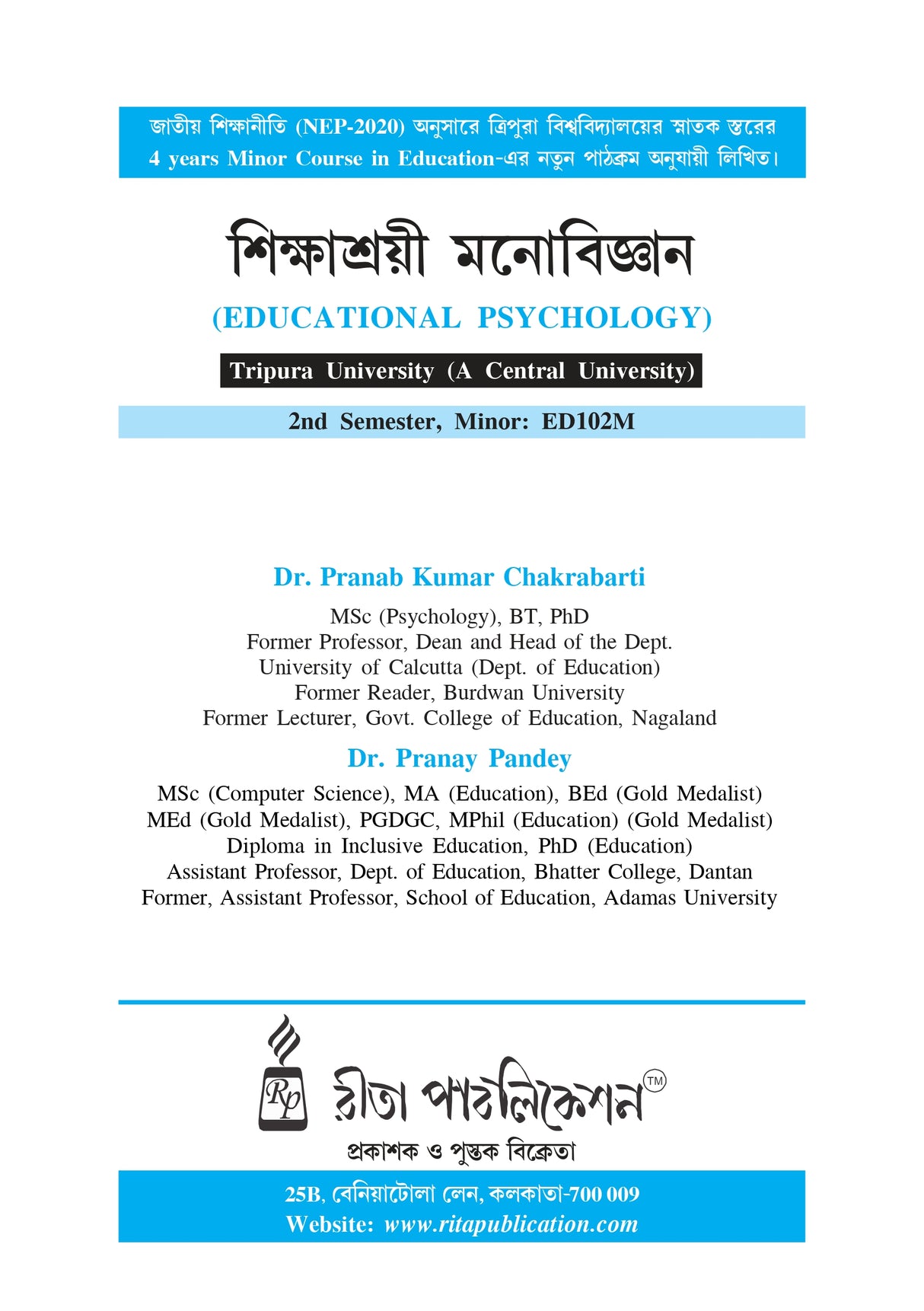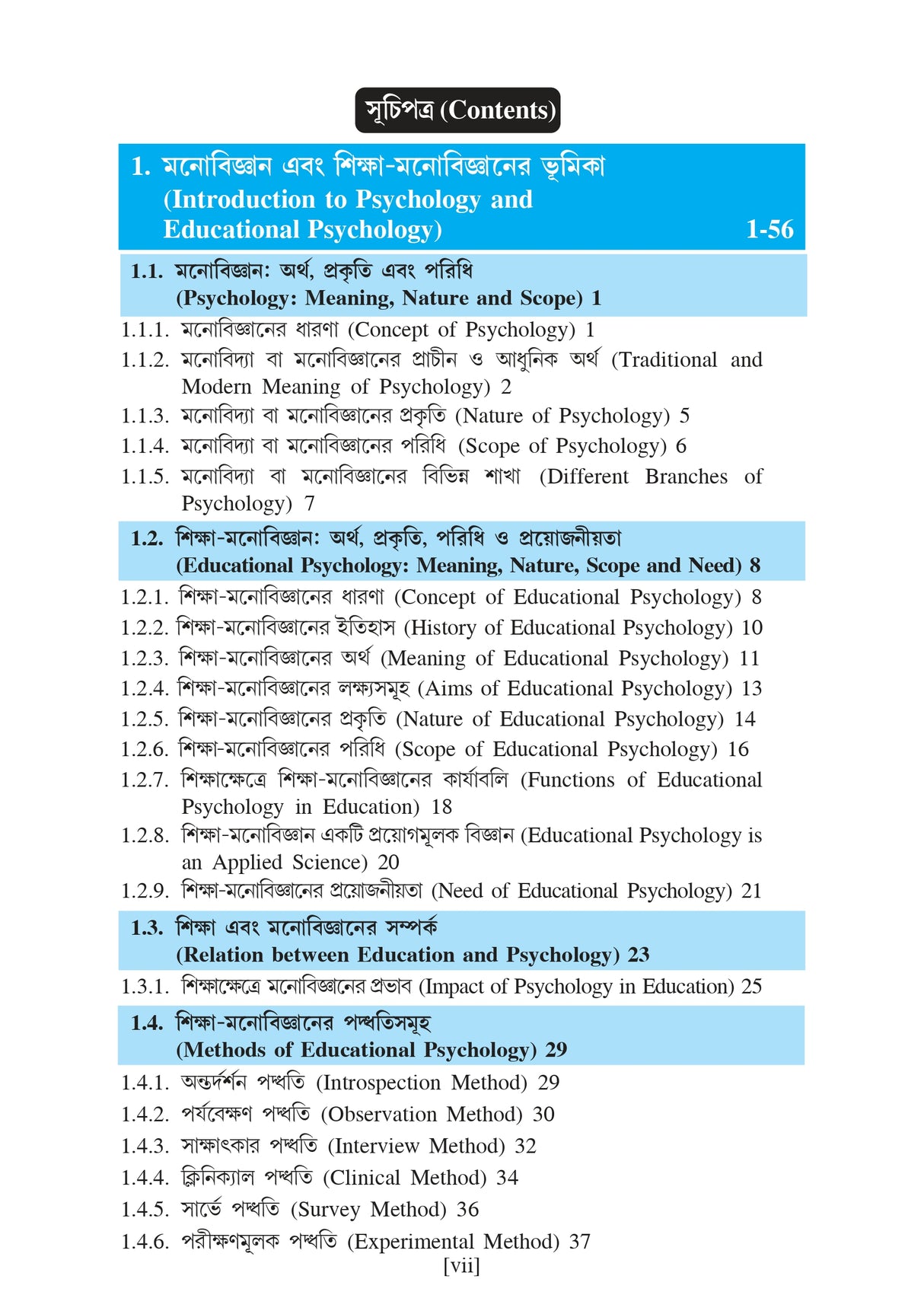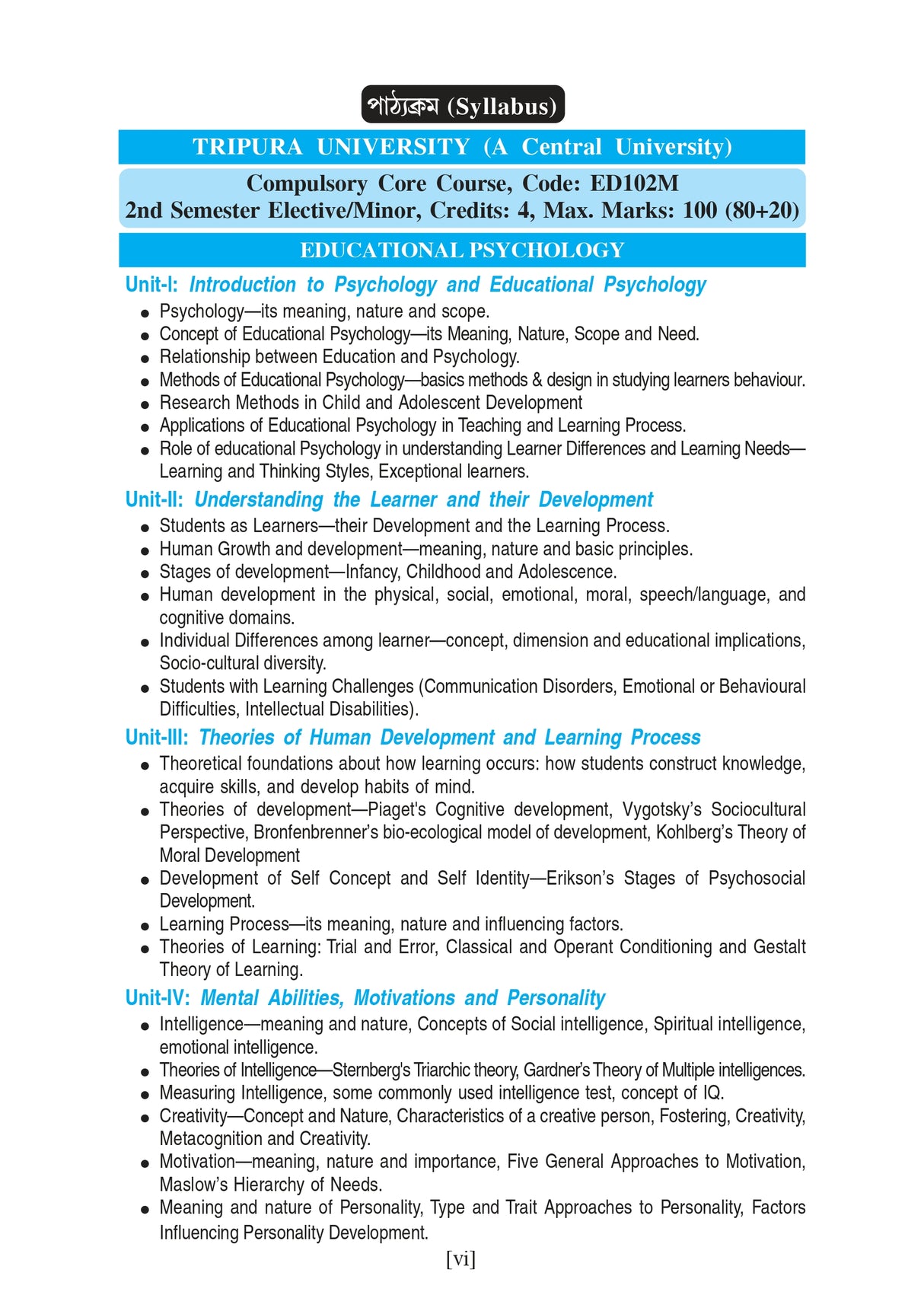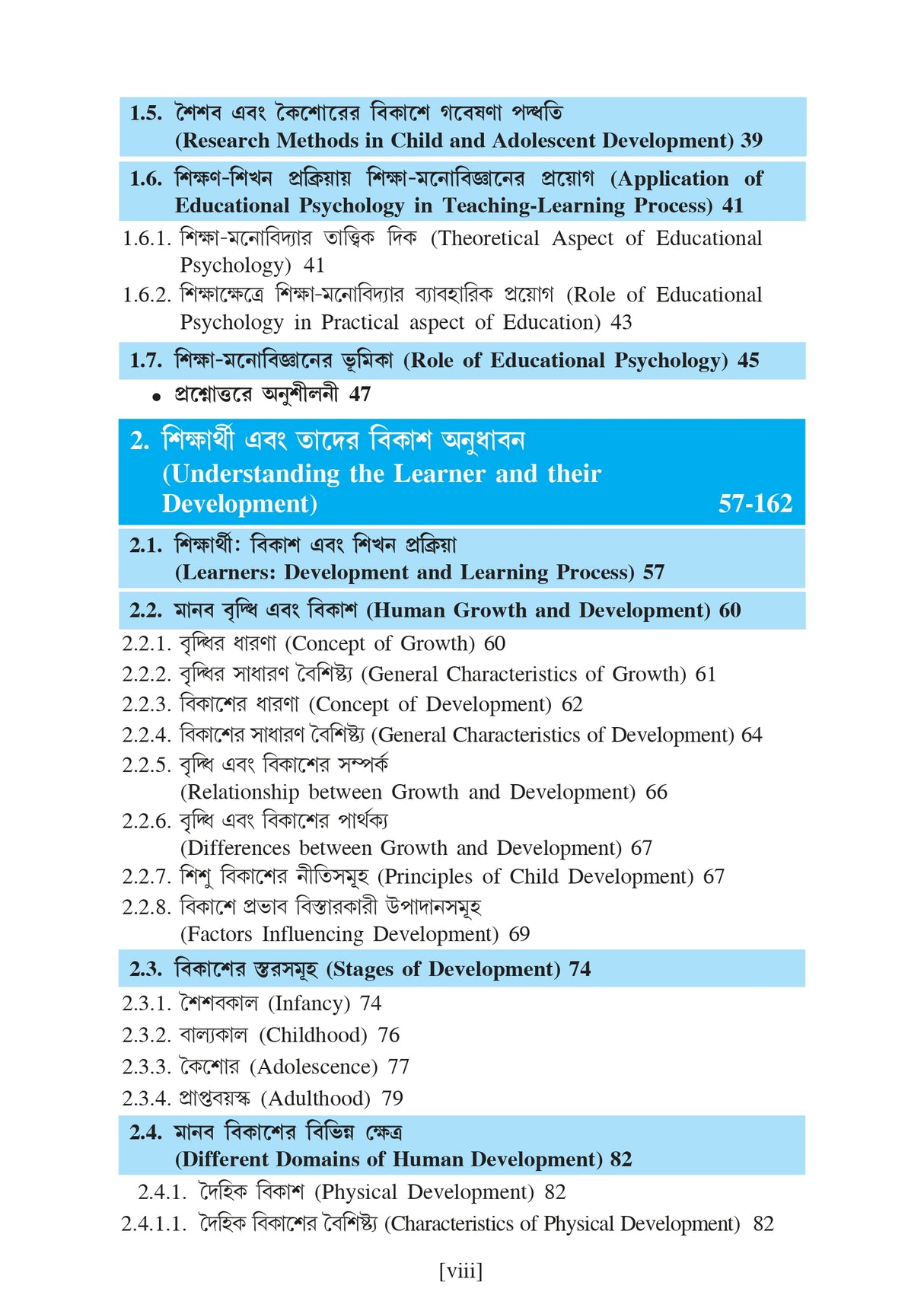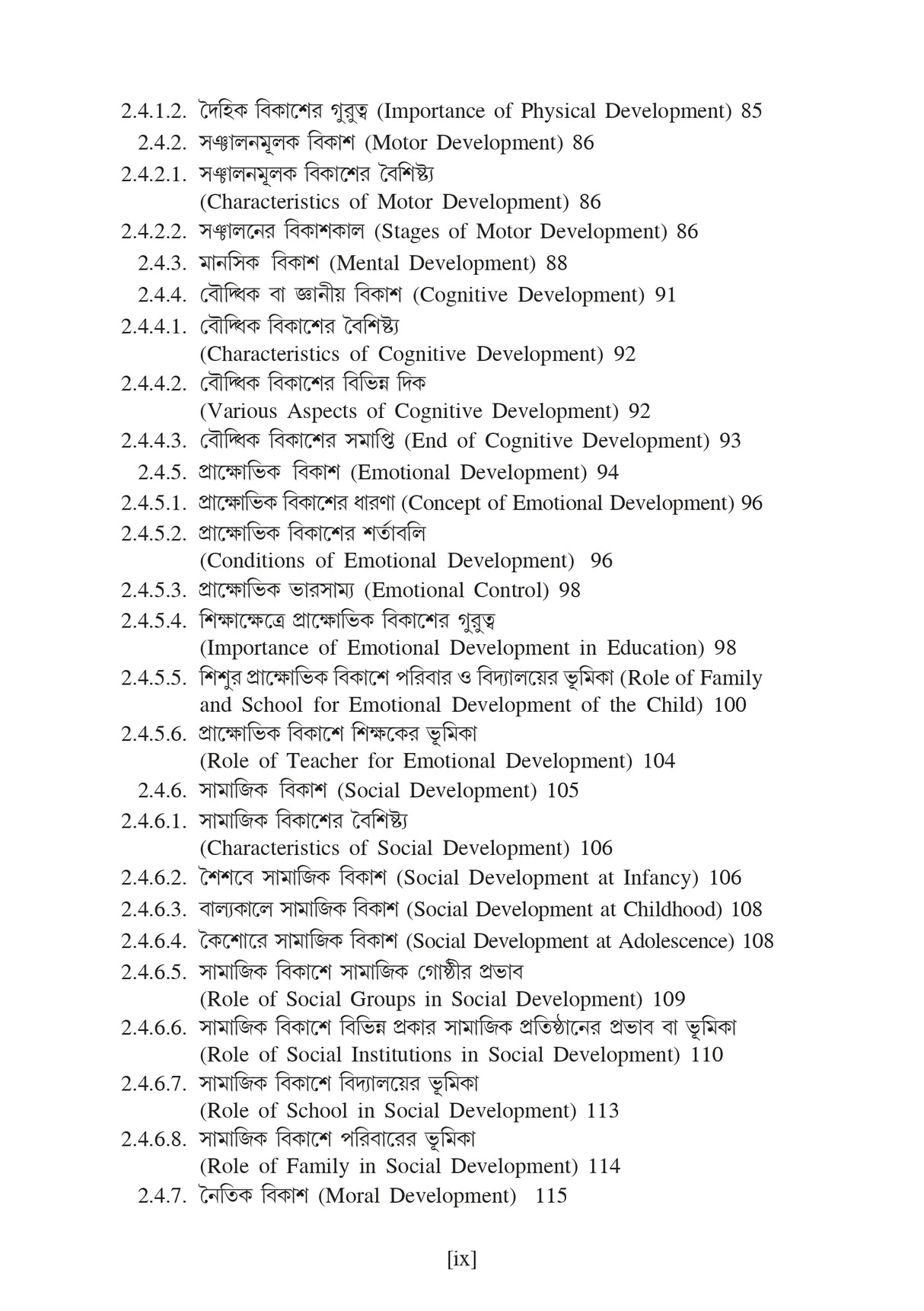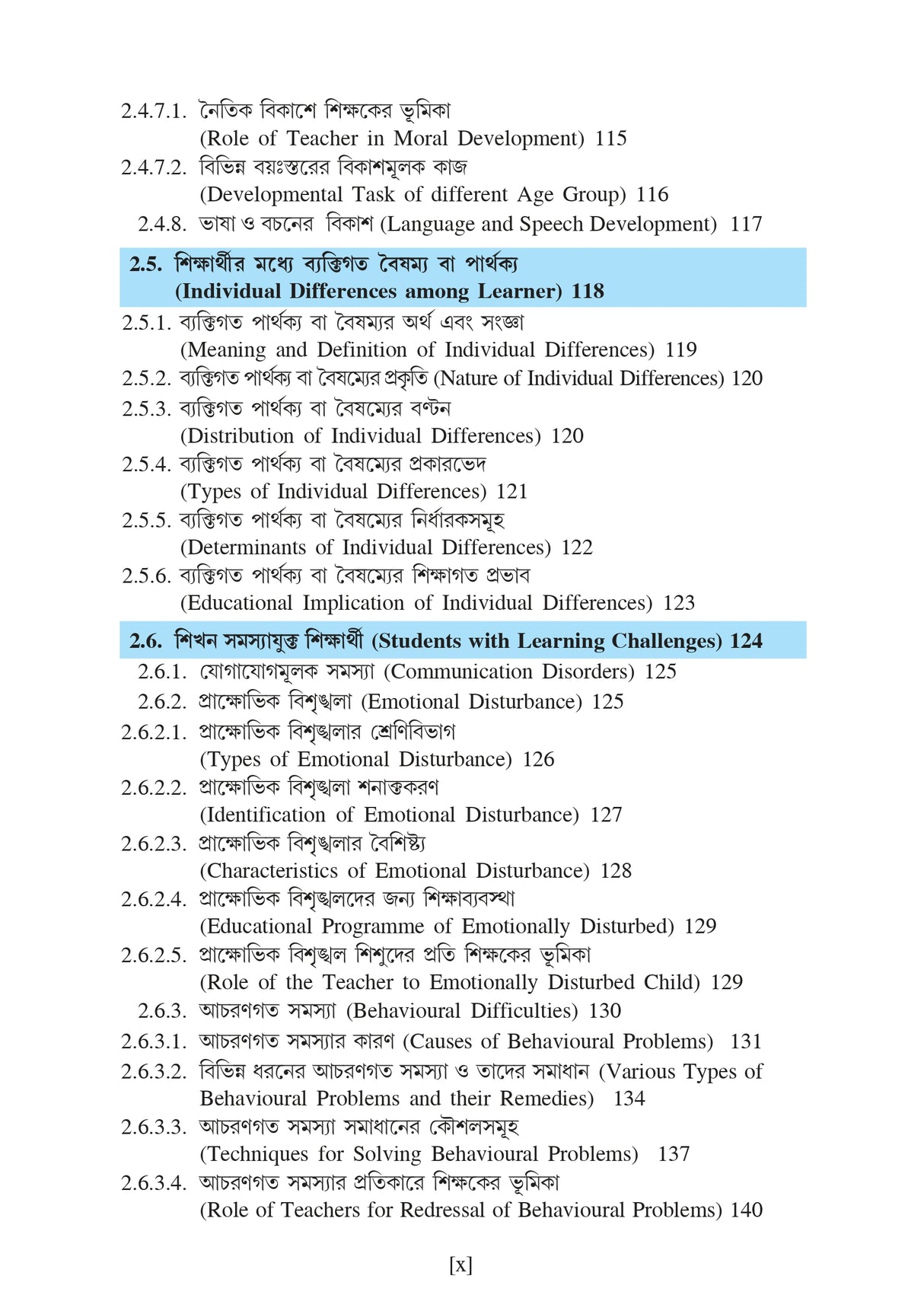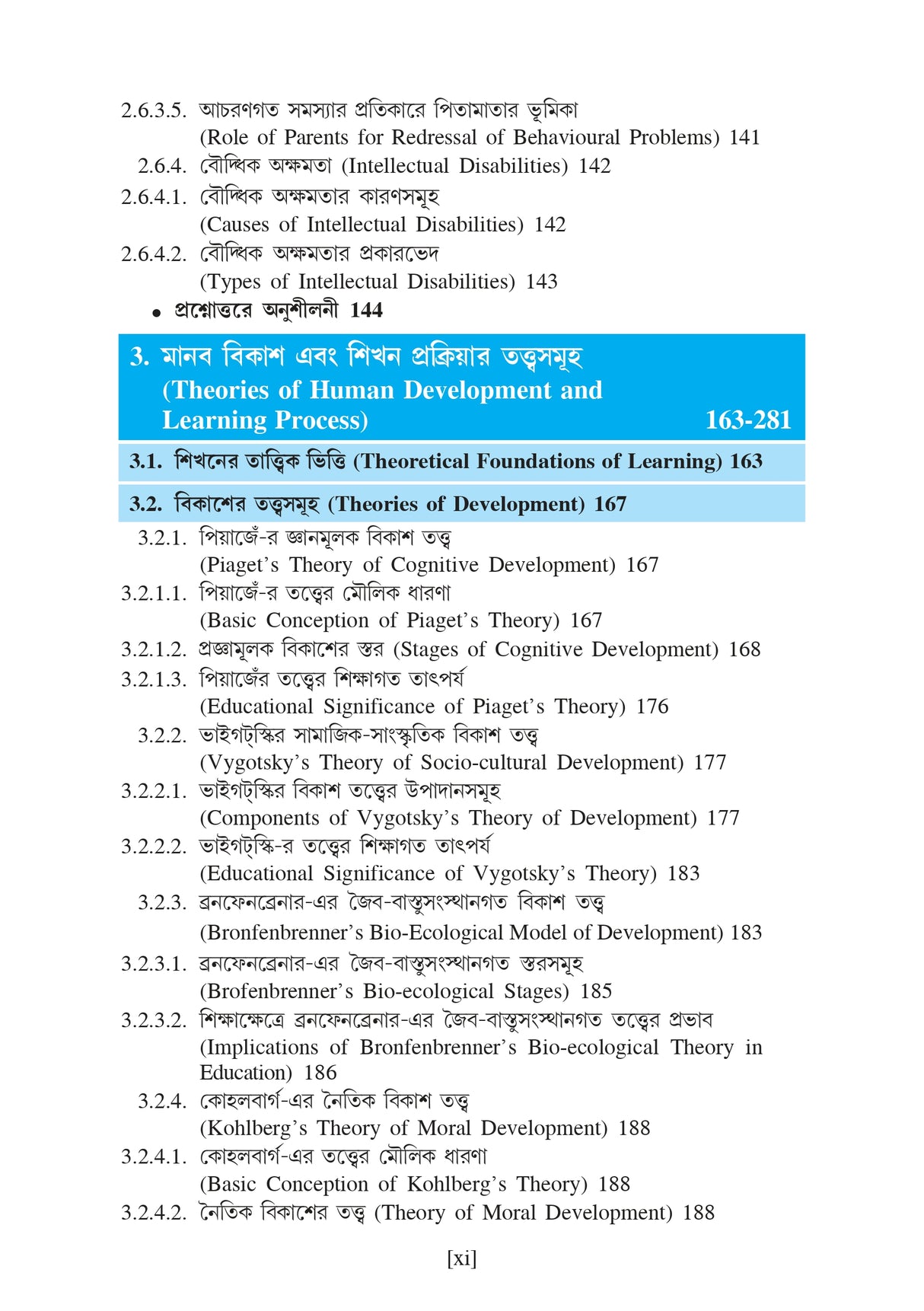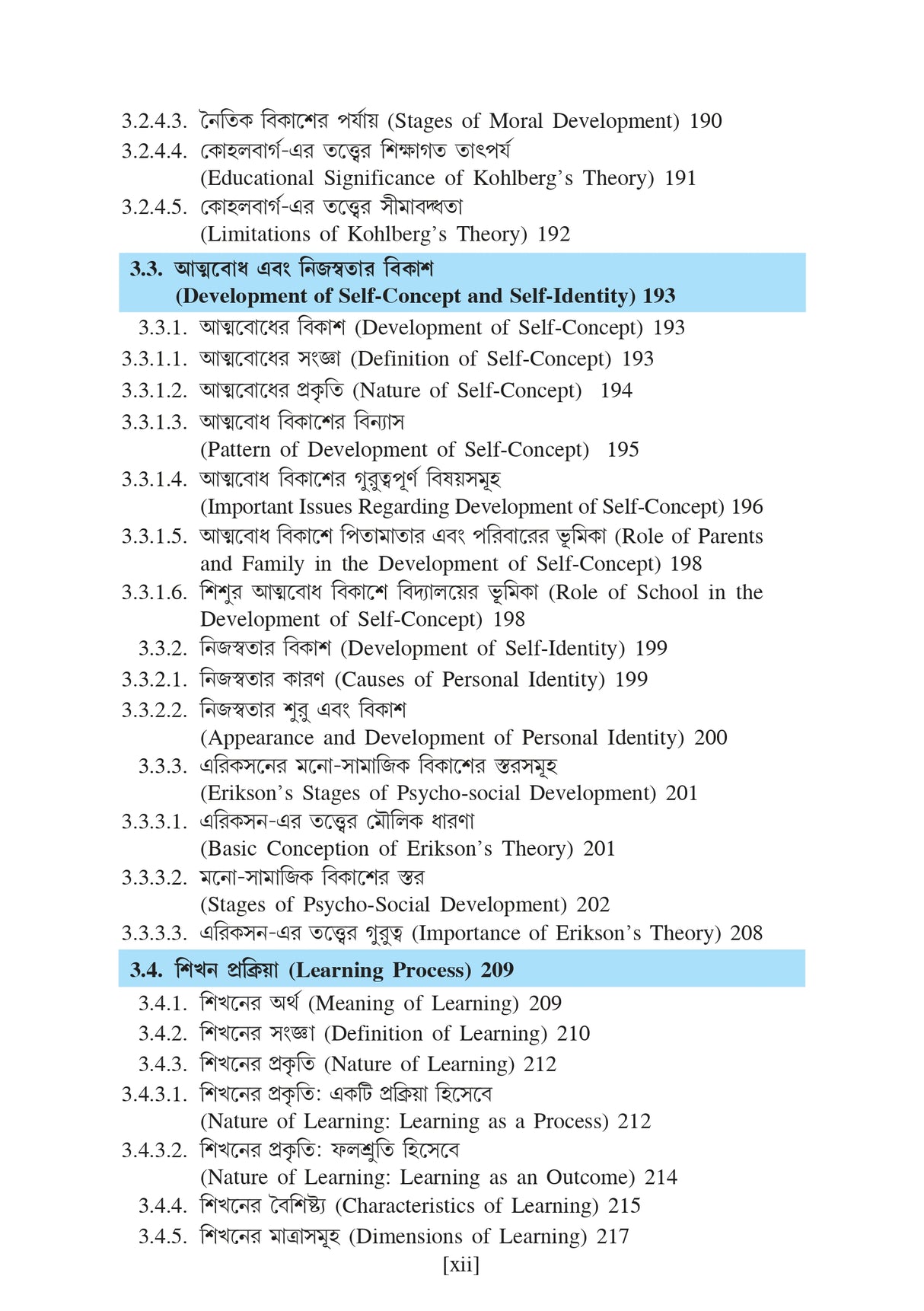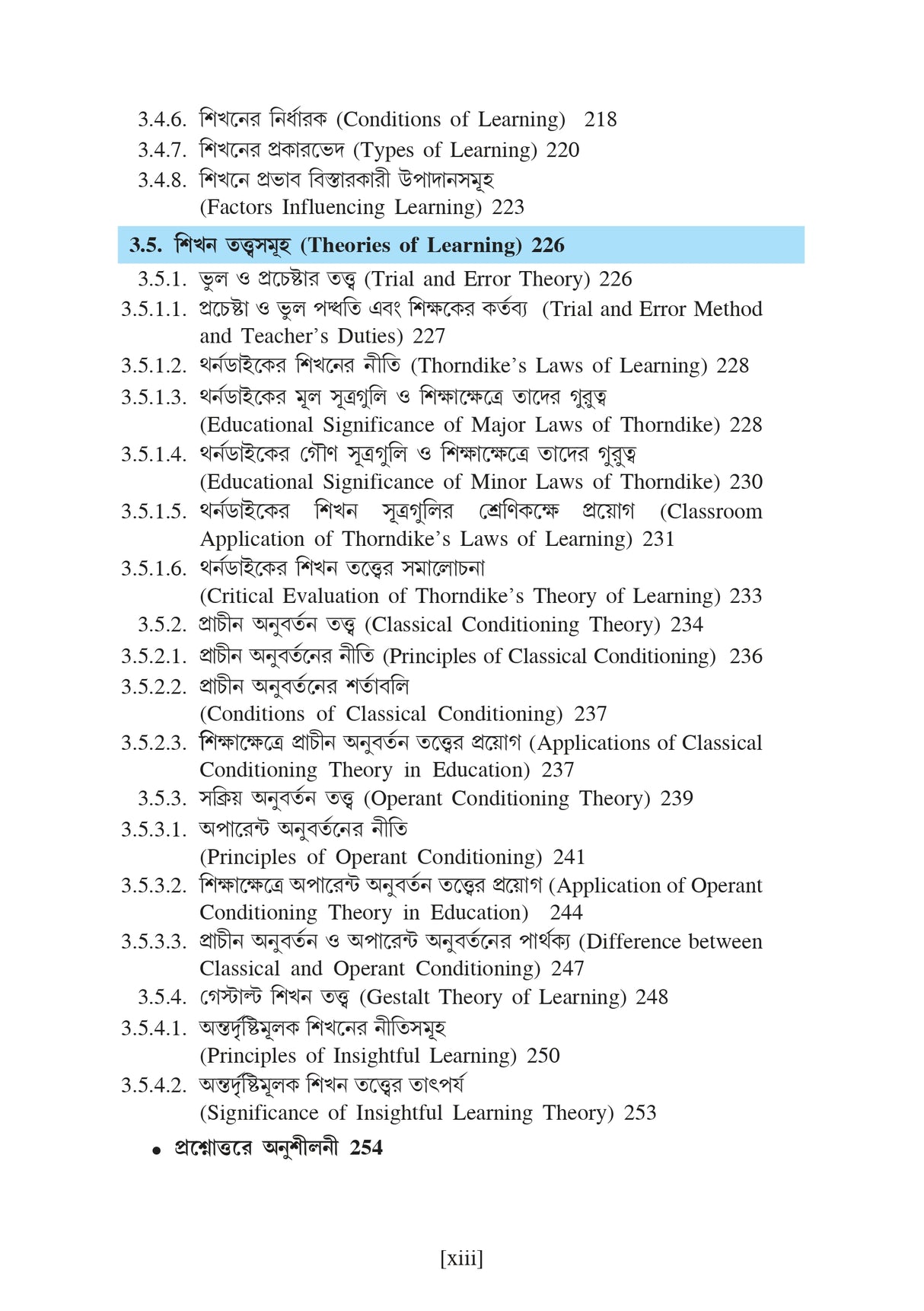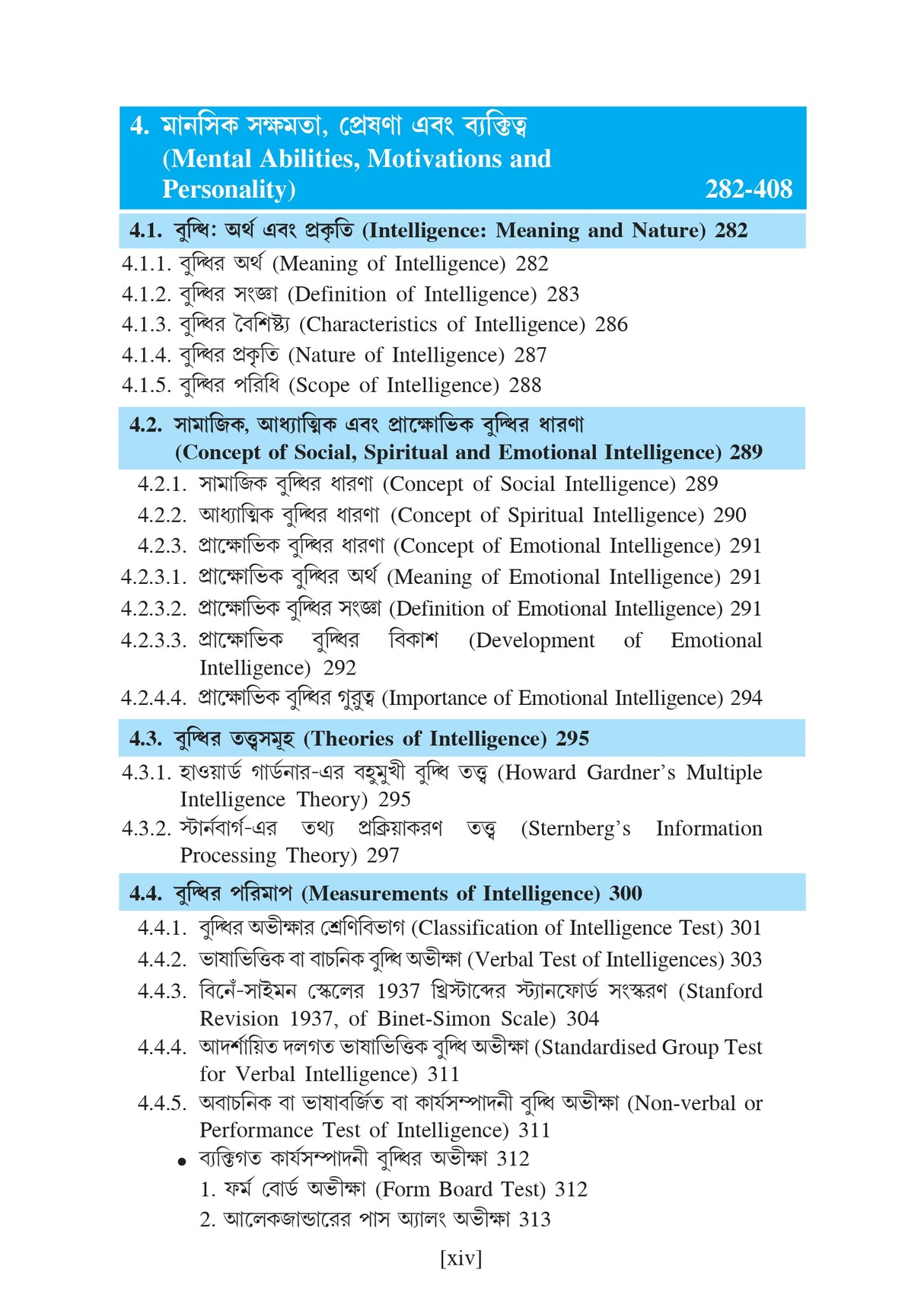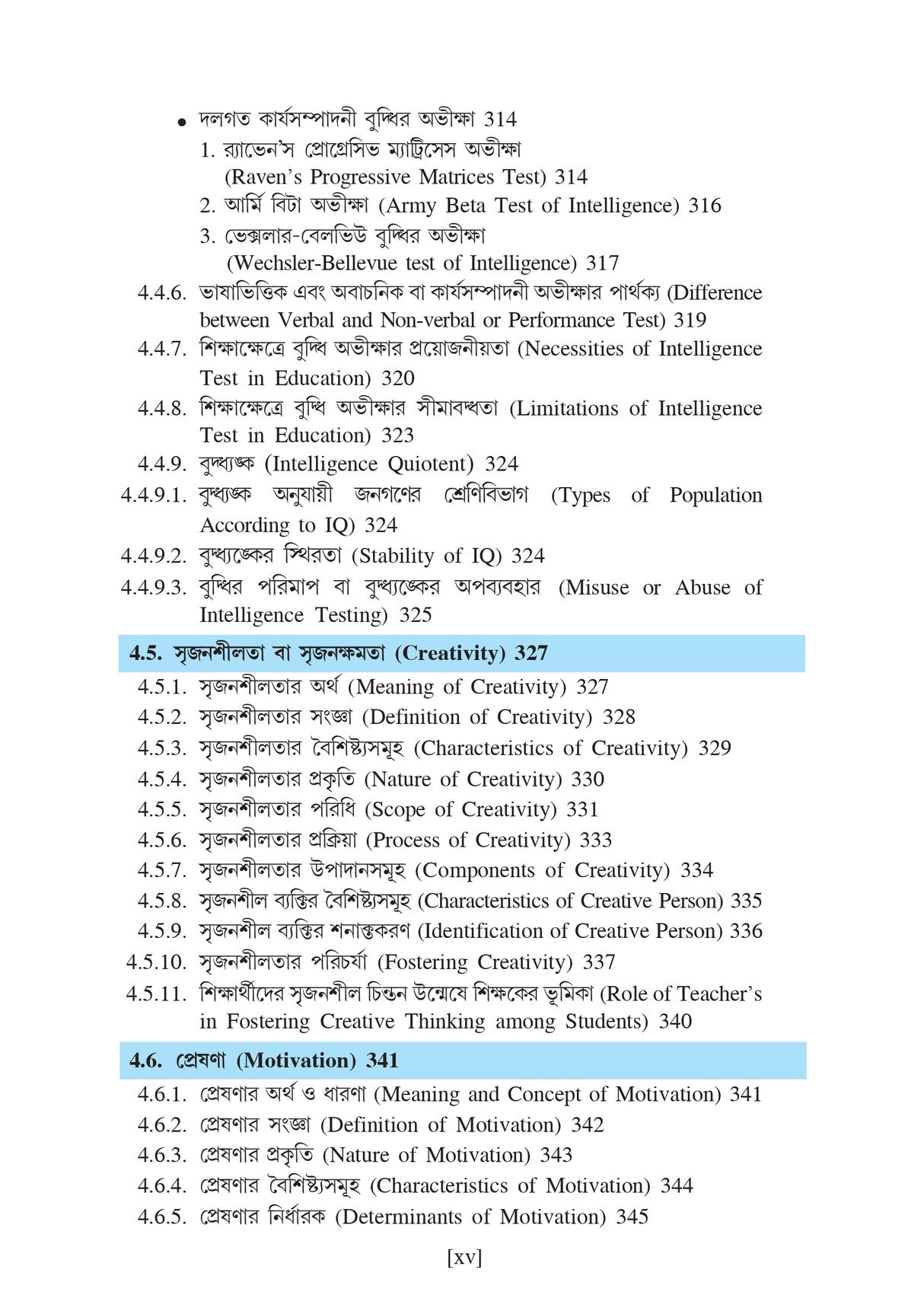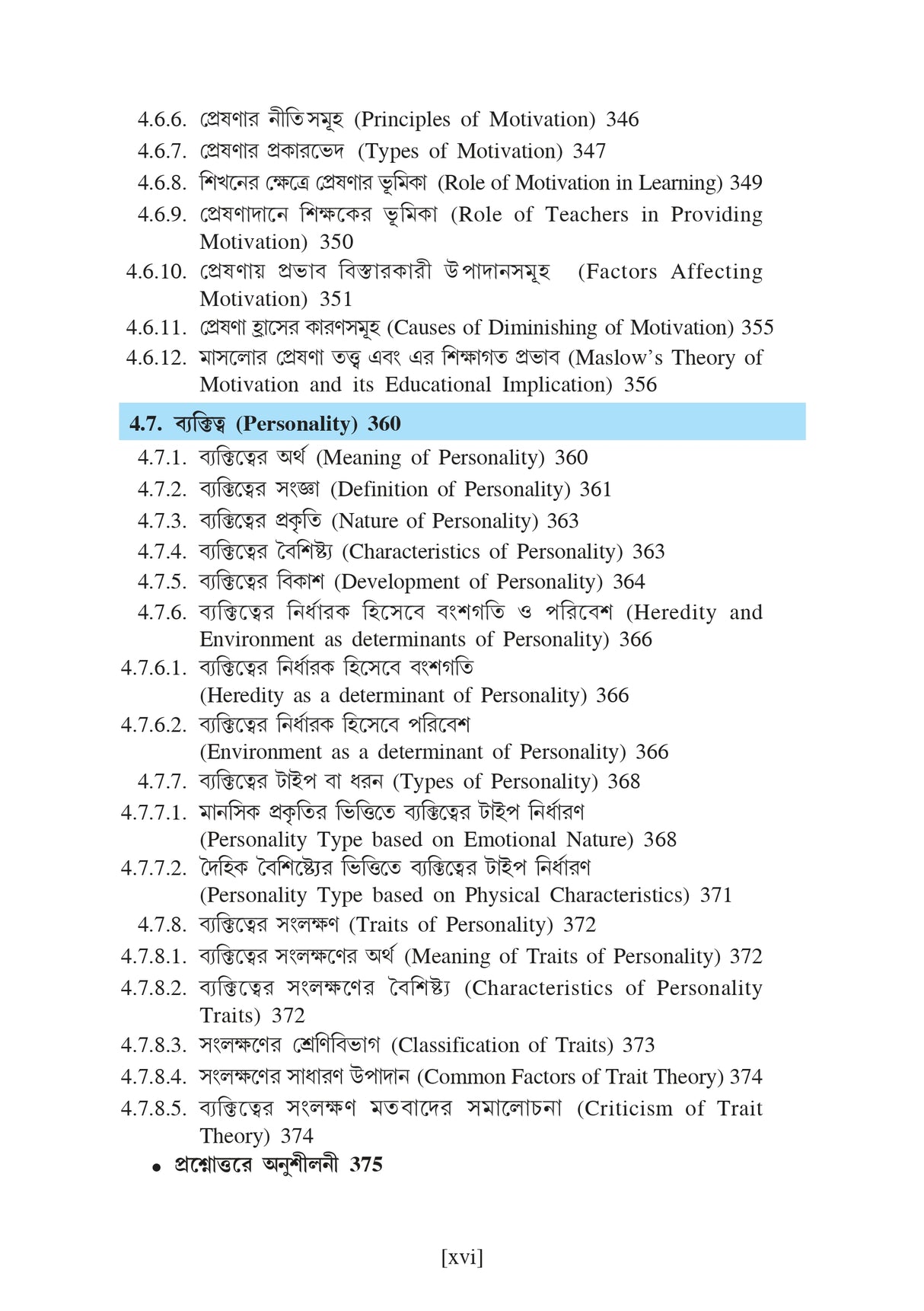Sikshasroyee Manobigyan (Educational Psychology)_Tripura Uviversity_2nd Sem_Minor_ED102M
Sikshasroyee Manobigyan (Educational Psychology)_Tripura Uviversity_2nd Sem_Minor_ED102M is backordered and will ship as soon as it is back in stock.
Couldn't load pickup availability
Genuine Products Guarantee
Genuine Products Guarantee
We guarantee 100% genuine products, and if proven otherwise, we will compensate you with 10 times the product's cost.
Delivery and Shipping
Delivery and Shipping
Products are generally ready for dispatch within 1 day and typically reach you in 3 to 5 days.
Authors: Dr. Pranab Kumar Chakrabarti, Dr. Pranay Pandey
Tripura University (A Central University)
Compulsory Core Course, Code: ED102M
2nd Semester Elective/Minor, Credits: 4, Max. Marks: 100 (80+20)
Educational Psychology
Unit-l: Introduction to Psychology and Educational Psychology
l Psychology—its meaning, nature and scope.
l Concept of Educational Psychology—its Meaning, Nature, Scope and Need.
l Relationship between Education and Psychology.
l Methods of Educational Psychology—basics methods & design in studying learners behaviour.
l Research Methods in Child and Adolescent Development
l Applications of Educational Psychology in Teaching and Learning Process.
l Role of educational Psychology in understanding Learner Differences and Learning Needs—Learning and Thinking Styles, Exceptional learners.
Unit-II: Understanding the Learner and their Development
l Students as Learners—their Development and the Learning Process.
l Human Growth and development—meaning, nature and basic principles.
l Stages of development—Infancy, Childhood and Adolescence.
l Human development in the physical, social, emotional, moral, speech/language, and cognitive domains.
l Individual Differences among learner—concept, dimension and educational implications, Socio-cultural diversity.
l Students with Learning Challenges (Communication Disorders, Emotional or Behavioural Difficulties, Intellectual Disabilities).
Unit-III: Theories of Human Development and Learning Process
l Theoretical foundations about how learning occurs: how students construct knowledge, acquire skills, and develop habits of mind.
l Theories of development—Piaget's Cognitive development, Vygotsky’s Sociocultural Perspective, Bronfenbrenner’s bio-ecological model of development, Kohlberg’s Theory of Moral Development
l Development of Self Concept and Self Identity—Erikson’s Stages of Psychosocial Development.
l Learning Process—its meaning, nature and influencing factors.
l Theories of Learning: Trial and Error, Classical and Operant Conditioning and Gestalt Theory of Learning.
Unit-IV: Mental Abilities, Motivations and Personality
l Intelligence—meaning and nature, Concepts of Social intelligence, Spiritual intelligence, emotional intelligence.
l Theories of Intelligence—Sternberg's Triarchic theory, Gardner’s Theory of Multiple intelligences.
l Measuring Intelligence, some commonly used intelligence test, concept of IQ.
l Creativity—Concept and Nature, Characteristics of a creative person, Fostering, Creativity, Metacognition and Creativity.
l Motivation—meaning, nature and importance, Five General Approaches to Motivation, Maslow’s Hierarchy of Needs.
l Meaning and nature of Personality, Type and Trait Approaches to Personality, Factors Influencing Personality Development.



